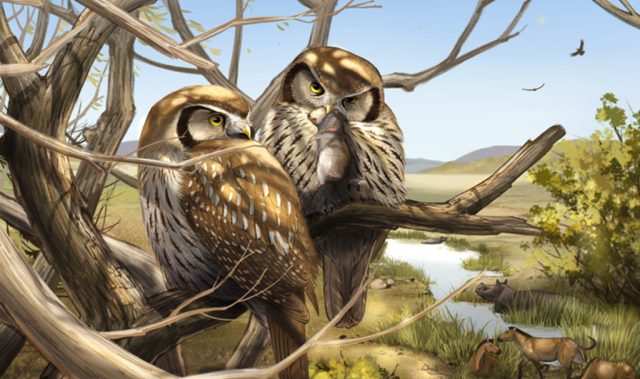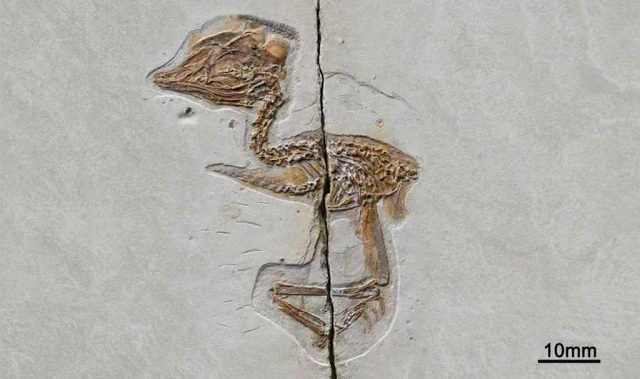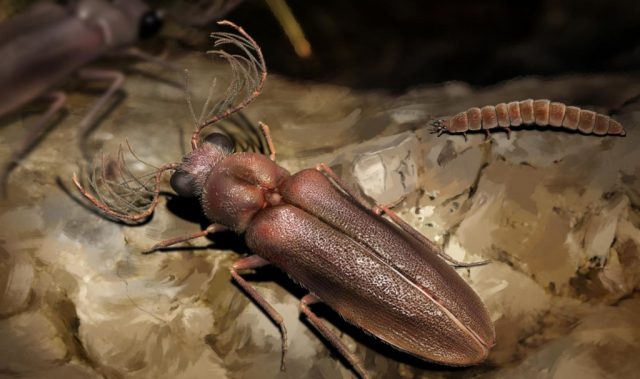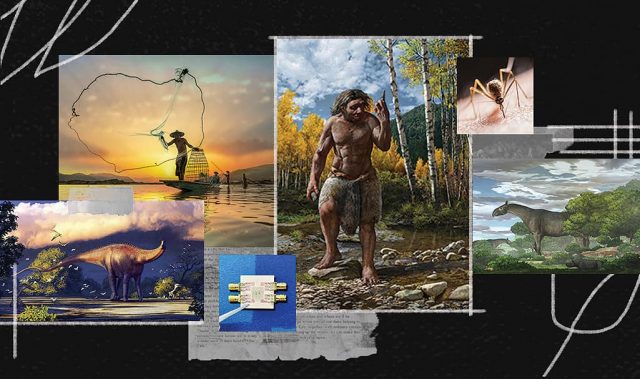
AsianScientist (Jun. 9, 2020) – An intriguing study from China has found evidence for the oldest known parasite–host relationship in the fossil record. These findings suggest that parasitism may have existed shortly after the Cambrian explosion approximately 541 million years ago.
Brachiopods are small shell-like marine animals that resemble bivalve mollusks. There are currently approximately 450 species of brachiopods living, but over 12,000 species are known from the fossil record.
In a study published recently in Nature Communications, Professor Zhang Zhifei from China’s Northwest University and colleagues analyzed a fossil population of the Cambrian brachiopod Neobolus wulongqingensis discovered in Yunnan, China, dating from approximately 512 million years ago.
Many of the brachiopods were encrusted with a tube-dwelling organism on the outside of their shells. Brachiopods that were encrusted with tubes were significantly smaller and the tubes were aligned with the brachiopod’s own feeding currents.
The researchers suggest that the tube-dwelling organism was a kleptoparasite, as it likely diverted the ancient brachiopod’s food to itself and reduced the host’s fitness.
“Kleptoparasitism is a form of competition, where food that is either already in the possession of the host or which the host has expended energy on obtaining and capture is imminent, is stolen by the parasite,” the authors write.
Parasitic interactions are difficult to document in the fossil record because most inferences have to be made based on appearance. Here, the authors have assembled rare evidence of not only the appearance of parasitism, but a cost of parasitism as well.
“Our analyses demonstrate that the tube-dwelling organism directly impinges upon the biological fitness of the host, supporting the assertion that the encrusting tube-dwelling organisms are parasitic, rather than being either mutualistic or commensal with the brachiopod host,” the authors write.
The article can be found at: Zhang et al. (2020) An Encrusting Kleptoparasite-host Interaction From the Early Cambrian.
———
Source: Nature; Illustration: Rebecca Gelernter/Near Bird Studios.
Disclaimer: This article does not necessarily reflect the views of AsianScientist or its staff.












